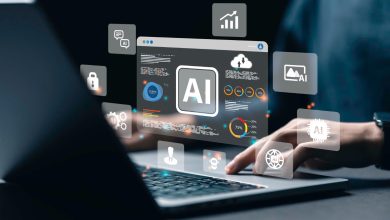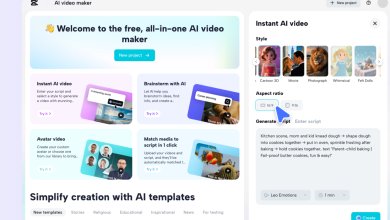Let’s be honest: there is a lot of pressure on healthcare teams these days, and one cannot deny that.
Costs continue to rise, hospitals struggle with personnel shortages, and patients demand quicker results. The promising potential of AI and machine learning in healthcare is more about developing smarter systems that really improve and increase the dependability of patient care than it is about technology.
If you’re a hospital executive, diagnostic center head, or health-tech provider, this guide will walk you through why AI and ML in healthcare are becoming essential. It will also cover,
- Current market of AI and ML in healthcare
- What problems do they solve
- How the right AI ML development company can help with implementation
- The role of AI in future of healthcare industry
- Why 2026 is the right time to invest in an AI healthcare solution
And more. Let’s dive in!
Market Snapshot: Why Healthcare Needs AI and ML Now
The healthcare market is evolving faster than ever, and numbers back it up.
- According to Grand View Research, the global AI in healthcare industry market is estimated to reach USD 187.69 billion by 2030, rising at a CAGR of approximately 38.6%.
- The American Medical Association reports that 66% of physicians said they currently use AI in their practice in 2024.
- A survey from Bessemer Venture Partners finds that 85% of provider- and payer-leaders expect generative AI to reshape clinical decision-making within three to five years.
These figures show one thing clearly: the future of AI in healthcare is no longer futuristic. It’s here. And those who adapt early will set the standard for patient care and operational efficiency.
Major Pain Points Healthcare Providers Face Today and How AI/ML Solves Them
Before discussing solutions, it’s important to look at the everyday challenges most healthcare leaders face, and how AI and machine learning in healthcare can directly address them.
-
Overloaded Clinicians and Administrative Burnout
Doctors spend up to 40% of their time on data entry and repetitive tasks instead of patient care.
Through AI-driven automation, from speech-to-text medical transcription to intelligent note summaries, it frees up valuable clinical hours.
Solution: With the right AI ML development services, hospitals can integrate automated documentation, clinical coding tools, and predictive scheduling systems that drastically cut admin time.
-
Fragmented and Unstructured Data
Patient records, lab reports, and imaging data often live in different systems, making analysis time-consuming.
AI-powered data integration tools unify all that information to give clinicians a 360-degree view of each patient.
Solution: An experienced AI ML development company can build FHIR-compatible data models and pipelines that bring real-time insights directly into EHR systems.
-
Rising Healthcare Costs
Manual claim management, delayed diagnoses, and poor preventive care lead to revenue leakage.
Solution: Predictive models built using AI and machine learning in healthcare identify at-risk patients early, reducing hospital readmissions and optimizing resource use.
-
Poor Patient Engagement
Missed appointments and inconsistent follow-ups are common.
AI chatbots, virtual assistants, and predictive reminders can personalize engagement and guide patients throughout their care journey.
Solution: Use AI for patient care by deploying conversational tools that offer 24/7 assistance, appointment tracking, and personalized health insights.
Real-World Applications of AI in Healthcare Industry
Medical organizations are already using AI in healthcare industry in several impactful ways,
- AI-Assisted Medical Imaging: Detects abnormalities in scans faster and with higher accuracy than manual review.
- Predictive Analytics for Patient Monitoring: Prevents critical events by analyzing patients’ vital signs and lab results in real time.
- Personalized Medicine: Machine learning models analyze genetics and lifestyle data to customize treatment plans.
- Drug Discovery: AI accelerates molecule screening and clinical trial design, cutting research time dramatically.
- Administrative Automation: NLP-based tools handle claim processing, coding, and discharge summaries in seconds.
Every one of these use cases connects directly to better patient outcomes, improved operational flow, and reduced human error. These use cases display that the future of AI in healthcare is only going to rise.
How An Expert AI ML Development Company Helps You Scale Smarter?
Implementing AI and machine learning in healthcare isn’t about creating a single product. It’s about building a connected ecosystem. That’s where a specialized AI ML development company comes in.
Here’s what they can deliver,
- Custom AI model development: Tailored for diagnostic imaging, triage, patient risk prediction, or workflow automation.
- HIPAA-compliant data management: Protects sensitive patient data and meets global healthcare regulations.
- MLOps and continuous model improvement: Keep your AI solutions accurate and relevant.
- System integration: Smoothly connects AI modules with existing hospital management and EHR systems.
- Explainable AI: Builds clinician trust through transparent, auditable results.
Proven Benefits of AI and Machine Learning in Healthcare
When implemented strategically, the use of AI in healthcare industry, along with machine learning, drives measurable value. Their benefits include,
- Faster diagnosis: Imaging AI reduces reporting time by up to 40%.
- Reduced costs: Predictive analytics help cut unnecessary admissions by 15–20%.
- Improved patient engagement: AI-powered chatbots are the best example of AI for patient care that keeps follow-up rates higher.
- Better clinician experience: Automated tools allow professionals to focus on care, not paperwork.
These are not hypothetical numbers. They reflect results seen in early adopters who partnered with strong AI ML development services providers.
Addressing the Common Implementation Challenges
You might already be thinking, “This sounds great, but how do I actually make it work?”
Here are some of the most common hurdles and the solutions to overcome them,
| Challenge | AI-Powered Solution |
| Data privacy and security | Encrypted infrastructure and anonymized datasets |
| Integration with legacy systems | API-driven design by experienced AI ML developers |
| Lack of in-house AI expertise | Dedicated AI ML development company partnership |
| Regulatory compliance | Built-in HIPAA/GDPR compliance framework |
| Long deployment cycles | Agile delivery model and MLOps for faster releases |
The Role of AI in the Future of Healthcare
Predictive, efficient, customized, and proactive care is where AI in healthcare is headed. These elements are already building that future.
- Continuous monitoring: AI-powered wearables track vitals and alert care teams instantly.
- Predictive health systems: Machine learning models detect disease risks before symptoms appear.
- Generative AI: Assists in documentation, patient education, and drug molecule simulation.
- Precision medicine: AI creates treatment plans specific to each patient’s biological and behavioral data.
These advances show how the role of AI in the future of healthcare is shifting from assistance to full-scale collaboration with human expertise.
Key Takeaways: Why Healthcare Businesses Should Act Now
Healthcare transformation isn’t about replacing humans. It’s about giving them better tools.
Hospitals that start early with AI ML development services will gain a major competitive advantage,
- Stronger patient relationships through proactive care
- Reduced administrative overhead
- Consistent quality outcomes
- Faster diagnosis and treatment
If your organization is still evaluating the use of AI in healthcare industry, the time for pilots and experiments is now. Early movers are already proving measurable ROI and operational stability.
Final Thoughts – Partner for Smart Healthcare Transformation
AI and machine learning in healthcare industry are not ideas for the future anymore. They’re actively showing how patient care, diagnostics, and hospital management can be improved and taken to the next level. From large healthcare networks to fast-growing telemedicine startups, organizations across the AI in healthcare industry are already seeing measurable change.
The question now isn’t if healthcare should adopt AI, but how soon you’ll lead that change with the right partner.
A capable partner does more than create algorithms. They build secure, scalable, and compliant systems designed for real clinical use. That’s where a trusted AI ML development company makes the difference, bringing both technical depth and healthcare understanding together.
The future of AI in healthcare depends on how organizations choose to act today.
If you’re ready to move toward smarter operations and better patient outcomes, partner with an AI ML development company that understands healthcare as deeply as it understands technology.



